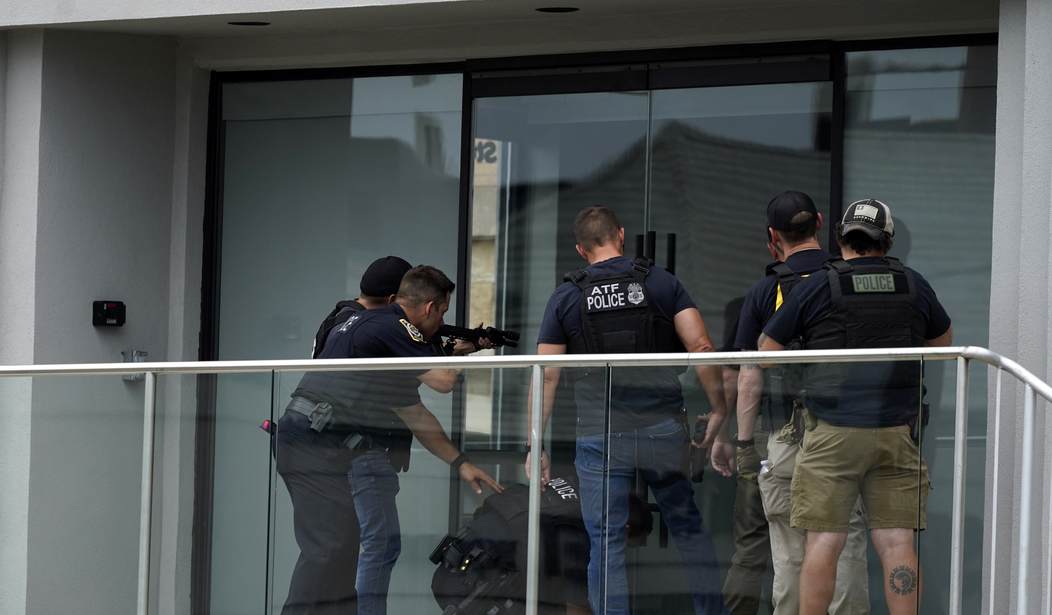The suspect in the targeted attack on a Fourth of July parade in Highland Park, Illinois lawfully purchased several firearms over the course of the past two years despite police responding to his home on multiple occasions over concerns that he posed a danger to himself and others, according to authorities.
Officials say that on two separate occasions in 2019 authorities were called to the home where the suspect was living, but no arrests were made in either incident.
The Highland Park Police Department received a report in April 2019 that Crimo had earlier attempted suicide, Covelli said Tuesday. Police spoke with Crimo and his parents and the matter was handled by mental health professionals, he said.
In September that year, a family member reported that Crimo threatened “to kill everyone” and had a collection of knives, Covelli said. Police removed 16 knives, a dagger and a sword from their residence. Highland Park police reported the incident to Illinois State Police, which said in a news release Tuesday that family members were not willing to file additional complaints.
The knives confiscated by Highland Park police were returned the same day after Crimo’s father claimed they were his, ISP said.
Over the next two years, Crimo legally purchased five firearms, according to Covelli — a combination of rifles, a pistol and possibly a shotgun. ISP confirmed Tuesday that Crimo passed four background checks between June 2020 and September 2021 when purchasing firearms, which included checks of the federal National Instant Criminal Background Check System.
In order to buy firearms in Illinois, individuals need a Firearm Owners Identification (FOID) card. Crimo was under 21, so he was sponsored by his father, state police said. Crimo’s application was not denied because there was “insufficient basis to establish a clear and present danger” at the time.
A couple of things here. Over at HotAir, Allahpundit wonders why the state’s “red flag” law, which also took effect in 2019, wasn’t used by police when they took the collection of bladed weapons out of the family home. While we don’t know the answer yet, we do know that there were less than three dozen Firearms Restraining Orders issued across the state that year.
Speak for Safety Illinois, an advocacy group, tracks statewide usage of FROs. The group reported 34 FROs were filed in 2019 and 19 FROs were filed in 2020 in Illinois.[29] At least one FRO was filed in 19 counties in 2019 and seven counties in 2020. DuPage County accounts for many FROs, with 12 filed in both 2019 and 2020. No other county filed more than two FROs in either year. Some FRO records are sealed, with no further information available about the circumstances or the respondent.[30] Speak for Safety reported the majority of FROs in 2019 were filed by a law enforcement officer (25); just five were filed by family members, including spouses and children. Similarly, in 2020, four FROs were filed by family or household members and 30 were initiated by law enforcement or sealed.
The Firearms Restraining Order lasts for six months, though it can be renewed, so it’s unclear whether using the law would have prevented the suspect from obtaining a FOID card and legally purchasing firearms in 2020 and 2021.
As we know, the suspect was able to receive a FOID card, which required sign-off from the suspect’s father in order for it to be approved. As a father myself, I find it inexplicable that the suspect’s dad would sign off on him owning a gun just three months after police were called to the home because the suspect was threatening to “kill everyone,” and only eight months or so after he’d allegedly threatened suicide.
Illinois State Police said they received a Clear and Present Danger report in September 2019 about Crimo.
The report was in connection to a threat he allegedly made against his family. No one, including members of his family, was willing to move forward on a complaint, ISP said.
No arrests were made at that time.
At the time of the incident, Crimo did not have a FOID card to revoke, and did not have a pending FOID application to deny, police said.
Then, in December 2019, at 19, Crimo applied for a FOID card and was sponsored by his father.
At the time, ISP said there were insufficient basis to establish a clear and present danger and deny the application.
Look, I happen to think that both the FRO and the FOID laws are unconstitutional, but regardless of my opinion they’re still on the books and (according to gun control advocates, anyway) are supposed to be valuable tools that prevent dangerous people from accessing guns. Clearly that didn’t happen here, and I’d say both the family and law enforcement share responsibility for that fact. The suspect’s family obviously knew that he was having issues, and I’d like to know a lot more about how mental health professionals “handled” his suicidal ideation in April of 2019. Did he receive voluntary inpatient treatment? Weekly counseling? Was he prescribed any medication?
No matter the answers to those questions, we know that less than six months later police were once again called to the family home; this time because the suspect was threatening homicide, not suicide. Family members may not have wanted to pursue charges, but police still had the power and authority to take the suspect in for a mental health evaluation, which could have resulted in an involuntary commitment (and the loss of his ability to legally acquire firearms). Why was that not done despite the suspect’s escalating threats of violence?
As it stands, the suspect was never formally arrested (or even charged with a crime) or adjudicated as mentally ill, so he would not have been disqualified from legally purchasing a firearm. Still, there were opportunities for both the state and suspect’s family to intervene. We just don’t know why they failed to do so.









Join the conversation as a VIP Member